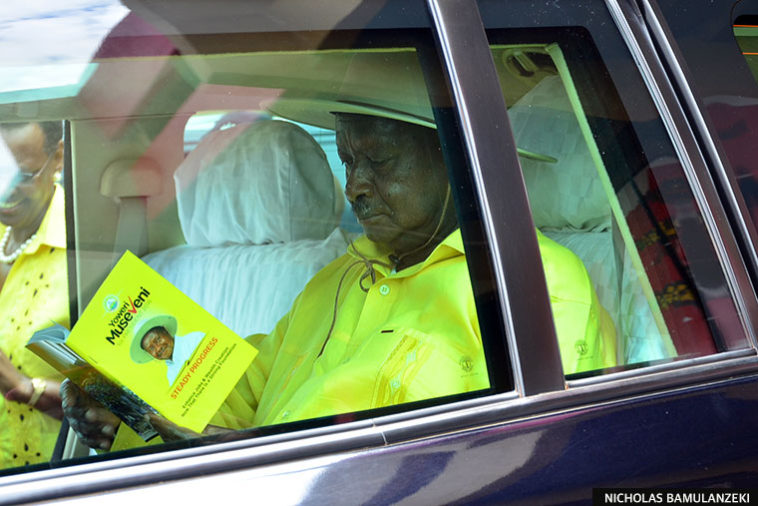Last week I ended at the issue of ‘tribalism’ as one of the ghosts ensuing from colonial distortions that we opportunistically, though tragically, inherited in postcolonial administration.
It is one of those factors that have defined politics in many African countries, so deeply entrenched in our psyche that one might wrongly think it’s genetic.
Tribe-based favouritism is a reality in Uganda today that we can only ignore it with the risk of getting worse. There are certain socio-economic and job allocation differentials in Uganda that cannot be explained simply in terms of merit, luck, and work ethic.
The Banyankore have an interesting evidential proverb asking: ‘why is it on the day when my grandmother goes missing that your dog passes stool with grey hair?’
As a silencing mechanism, the logic of ‘sectarianism’ in Uganda has been inverted whereby the offence now is to talk about it. But we won’t be able to achieve national cohesion as long as sections of society feel that they have not been given as much room on the national table as ‘others’. It breeds jealousy, conflict and hatred.
The easy response to accusations of tribal favouritism is to argue that it’s not true because there are poor people from the regions said to be favoured.
This is utterly fallacious. Even under apartheid, there were poor whites. But this did not change the fact that generally, whites stood more privilege both by direct connections and structurally. That a certain group is favoured doesn’t mean that all members of that group are beneficiaries – which is one way in which favouritism puts innocent members of a favoured group at risk.
For when group divides get politicised, it is usually in collective terms of ‘we’ versus ‘them’. The logic of exceptions hardly ever applies in fights around collective identities, emotive passions are in charge.
I am hesitant to use the word ‘tribe’ because I am aware of its derogatory anthropological roots and implications. I only use it reservedly here in view of its sanitised local version and ability to communicate to those for whom it innocently means ethnic groups.
It is difficult to solve a problem whose roots and dynamics one does not consider. There is plenty of insightful literature on the problem of ethnic politics in Africa. Sadly, there are many signs to show that many of our leaders hardly read to keep track of important debates.
Ever since President Museveni came to power, I have not heard him cite any book published after 1986. He still cites Adam Smith, Frantz Fanon, a bit of Karl Marx, and what else. Yet I am doubtful if there is anyone he can listen to to update him on subsequent debates. This is not healthy for the country’s progress.
In 1975, Archie Mafeje published a very insightful journal article titled: The Ideology of Tribalism. He explains how tribe was malignantly constructed by the colonial office in distortion of ethnic identities and dynamics they found in Africa. In 1996, Mahmood Mamdani extensively followed up the subject in his ‘Citizen and Subject’ [I’m not discussing Mamdani’s administrative flaws].
The key idea is that colonialism set in motion a sense of citizenship (and rights) based on ethnicity, on grounds of rigid categories into which we were conveniently frozen – a false start that we have mastered and vulgarised in our governance styles and politics. An ethnic consciousness was thus produced, sometimes grounded on polluted precolonial nationalism.
The recent request by Ugandans of Indian origin to be declared a Ugandan ‘tribe’ says a lot on this.
This way, access to the state by any individual came to mean their ethnic group’s turn at the dining table. This has not been done by Museveni’s regime alone, many of our past governments often took the face of their president’s origin.
Only that Museveni’s excessive stay in power has meant a longer and more entrenched ethnic imbalance. And let’s not pretend to hope that by some sort of angelic benevolence the next government will be more ethnically inclusive, no matter where the leader is from. So, what do we do?
Whereas the earlier suggestion of strong institutional measures can help address this challenge to some extent by making it difficult for any of the powerful to arbitrarily recruit/favour ‘their own’ without consequences, this is something about which we need to talk.
Some time back, the late Prof Nabudere, Prof Rugumayo, Prof. Oloka Onyango, and some others had initiated what they called a National Dialogue. Under modalities we can agree on, we need to candidly discuss how we shall manage some of these sensitive issues without any part of Uganda feeling excluded.
We can as well consider other ways of making people from different regions of Uganda to understand and appreciate each other and the fact that we do not have to be the same to accept each other. Bigotry, ethnocentrism, and other forms of discrimination thrive well in environments of ignorance about ‘the other’, where stereotypes and prejudices fill the vacuum.
In the past, students would be taken to study in places other than their homelands. This way, they would get to learn about the humanity of others, and the fact that the world was broader than their ethnic groups.
Of course, this measure depends on several other factors – including belonging to the state project. Sometimes people have studied in diverse settings but come out still locked in the parochial ethnocentric view. There are some theories of ethnic attachment explaining this affinity construction and how it can be redirected.
The last issues I will address in this series are what we should do about our education system to make it more responsive to our needs and what we shall do about the people who have committed crimes under the shelter of the current regime.
(To be continued next week).
Originally published on observer.ug
This post was created with our nice and easy submission form. Create your post!






